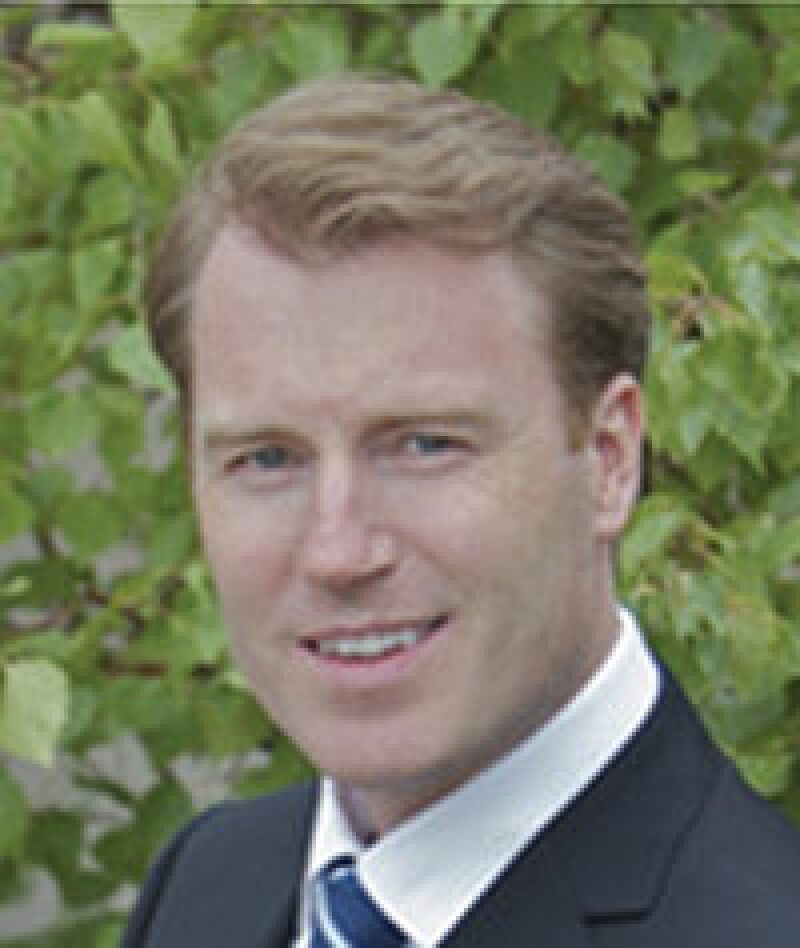When did you first start working in the oil and gas industry? What were your first impressions?
I graduated from university with a degree in petroleum engineering in 1991 and immediately began working for Exxon. One of the things I really appreciated from the start was the focus on structured training and development. This is in fact a common theme among the major companies in our industry and in my case it helped me progress quickly and take on bigger responsibilities early in my career. Today, I think business and technical training for oil and gas professionals is better than ever.
How do you think this industry stacks up against others and why should young professionals (YPs) pursue it? What is Schlumberger in particular doing to ensure that younger staff and talent are retained?
We compete with a lot of other industries for talented graduates and in general we stack up very well against them. This is not just because of the training I mentioned but also because of the important role we play in the global energy equation and the sheer size of the challenges that lie ahead. This is what has driven advances in technology across the oil and gas sector, making us one of the most high-tech and innovative industries to be part of.
In the case of Schlumberger, I think it is important to attract people who are clearly aligned with what we have to offer and who understand that a Schlumberger career is far from being a regular 9-to-5 office job. When we are out recruiting, we are very transparent about this, so there are no surprises for new employees after they join. Then we try hard to deliver on what we promise through our technical training, borderless careers, and diverse company culture.
What inspires you?
I am inspired by Schlumberger’s history. It makes me want to continue the 80-year tradition of combining science, technology, and talented people to help solve our customers’ challenges. Also, when you see dedicated people on a daily basis who go out of their way to deliver excellence, it’s hard not to be inspired by their spirit.
Who has helped you the most in your career, and what lessons did you learn from your mentors? Do you have a role model you looked up to or took advice from?
From a personal standpoint, my parents were a big influence on me. They were always very supportive and they taught me to leave nothing on the table when it comes to effort. My wife and kids have also been great. It can be a tough lifestyle with a lot of traveling and time apart from your family but it helps when you know they are totally supportive.
From a professional standpoint, I have been working with great people throughout my career at Schlumberger. There is a lot of camaraderie and I continue to learn from them.
What are the main challenges and changes you see on Schlumberger’s horizon in the next 10 to 15 years?
For the next 5 years or so our main challenge as a company revolves around execution. We have already invested heavily in our technology portfolio, our organization, and our infrastructure, so now it’s about bringing all this together to create value for our shareholders.
Longer term, we believe energy demand will continue to grow and the supply challenge will get even tougher. These are precisely the conditions under which Schlumberger has a lot to offer, and our future direction will be toward greater technology integration and increased levels of equipment reliability. This will be essential both in terms of future project economics and tougher operating environments.
How would you describe Schlumberger’s business model and how does it stand up against international oil companies (IOCs) when it comes to operating fields? How will this evolve in the future?
In simple terms, we have three levels to our offering. The first is to sell individual services such as wireline logging. The second combines our individual services into an integrated package where we also take certain responsibility for coordination of services in the field. The third level, which we call project management, is where we take a more significant role in the management of the customer’s asset, as well as the overall scope of work. With each level, we are prepared to take on a higher degree of risk related to our operational performance in return for higher rewards when we exceed our customers’ expectations.
You can see from this that we are not very close to the traditional IOC model. However, we do share some of their capabilities, particularly on the production management side. We don’t want to own assets, but we are very happy to help optimize performance from a field management standpoint.
“In places like Europe, we are seeing legislation designed to push the industry toward a more efficient and environmentally sustainable approach...”
What do you expect will be the role of unconventional resources in the next 20 years and how can YPs contribute to fulfill this role? What should YPs be learning in the short term?
Unconventional resources are clearly set to be a significant contributor to future energy supply not just in North America but internationally as well. However, we have a long way to go in building our understanding of the complex production mechanisms involved with shale oil and gas plays, each of which exhibits very different properties from more conventional reservoirs.
Our challenge today is to discover the underlying science behind these resources so we can build reservoir models that help us reduce economic uncertainty and increase production efficiency. I think that this gap in knowledge gives a particular opportunity to YPs, who can apply their creativity and open-mindedness in a new direction.
Could you please comment on environmental concerns about the development of unconventional resources such as shale gas and bitumen?
In the case of shale gas today, there is a significant amount of resource waste, whether in terms of proppant, water, or hydraulic horsepower. This increases the environmental impact and also requires a larger operational footprint. There is therefore a large economic and environmental upside to the application of science and technology to developing unconventional reserves. In places like Europe, we are seeing legislation designed to push the industry toward a more efficient and environmentally sustainable approach and I would not be surprised if we eventually see the same trend in North America.
How would you describe Schlumberger’s culture? How important is your company culture in developing knowledge and new technology?
The company culture is centered on our core values of people, technology, and profit. Our people are unique, and we have a truly diverse mix of nationalities at every level of the company. We also move people around quite a lot so they develop a strong global network of friends and support. We trust YPs with a lot of responsibility from the beginning and we promote based on merit, so how you progress is based on abilities and performance. For technology, we are a community of scientists and engineers, all committed to solving our customers’ challenges. We invest more in R&D than anyone else in our industry and we see innovation and technology as key to maintaining our leadership position.
When you are recruiting someone to join your team, what qualities are you looking for? What would make someone stand out to you?
I look for people who are motivated and ambitious, both for themselves and for the company. What makes people stand out is when they have both a “yes we can” attitude and a team mentality. I also like to see people be prepared to stretch themselves and be open to new ideas.
Have you had professional interaction with SPE in the past? Has your workforce had the opportunity to leverage company activities with SPE expertise?
I regularly enjoy being involved with SPE. Recently I visited the Al Khobar chapter in Saudi Arabia and made a presentation outlining how we are going to create the next step change in drilling performance. As always, this was an interesting and energizing experience for me. If you consider the overall interaction between Schlumberger and SPE, I believe it is healthy and beneficial for both parties. SPE provides an excellent common meeting ground to network with other industry players and it allows a level of collaboration and knowledge sharing across the industry that would otherwise be difficult to achieve. For our technical community, SPE presents a forum within which to engage in technical discussion and gain recognition through publishing technical papers. This is a valuable opportunity many Schlumberger employees are happy to leverage on a daily basis.



